Chair, Trustee
Early Career Council Members
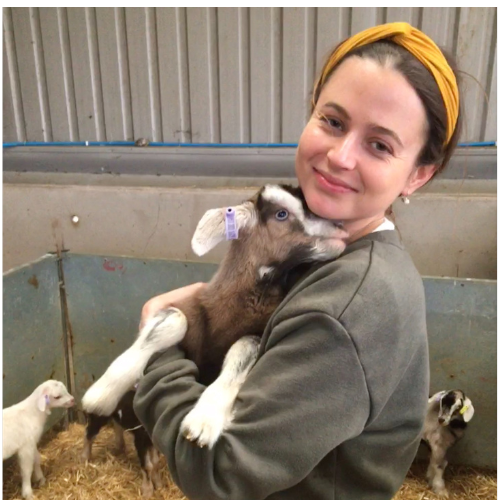
Holly Vickery
Deputy Chair
Holly Vickery Deputy Chair
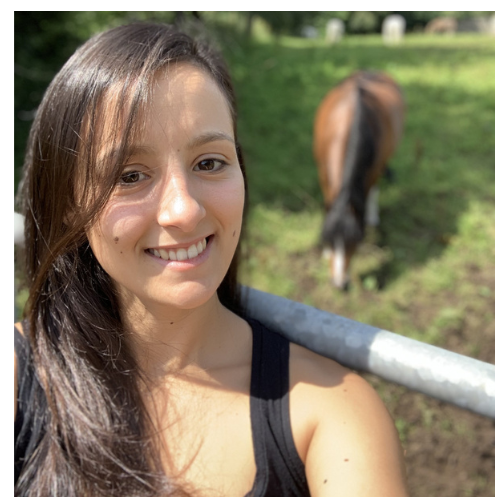
Viola Farci
Council Member
Viola Farci Council Member
Dr. Viola Farci - www.linkedin.com/in/viola-farci-0766781a1
Role: ECC Academic Communications Rep
Organisation: SRUC, University of Glasgow
Viola is a lecturer in animal science (SRUC) and animal nutrition (SRUC/University of Glasgow) working with students at various academic levels (BSc, MSc, PhD). Her main research interests include but are not limited to companion and domestic animals’ nutrition, in vitro digestibility simulations, rumen/gut microbiome of different species, animal welfare and ethics. In 2022, Viola completed a PhD in animal Nutrition at the School of Veterinary medicine in Glasgow where she investigated the effect of feed processing on equine and ruminants’ digestibility, microbiome and overall GIT health. Shortly after, she worked as a lecturer and program coordinator for the online MSc in Animal Nutrition (Glasgow/SRUC) until she started her permanent role as a lecturer in animal sciences at SRUC, Barony Campus. Viola joined the BSAS ECC in 2018 and participated in the organisation of activities and seminars such as the R and Stats workshop (online), and the ECC Mental Health Webinar. She’s also a registered BSAS Animal Scientist.
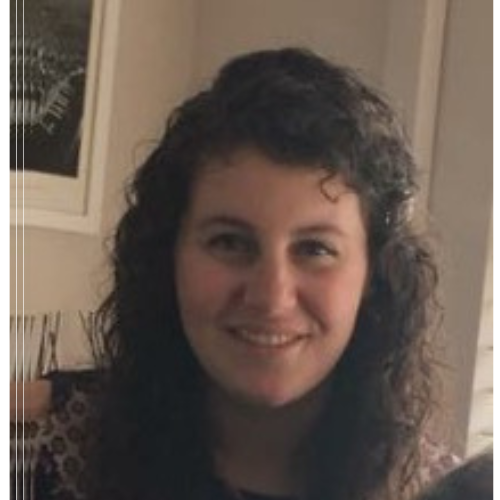
Victoria Lindsay
Council Member
Victoria Lindsay Council Member
Dr Victoria Lindsay-McGee
ORCiD | LinkedIn | ResearchGate | GitHub EqSci@Ed FaceBook | EqSci@Ed Twitter | EqSci@Ed LinkedIn
Role: ECC Member and Publications Committee Rep
Organisation: The University of Edinburgh Royal (Dick) School of Veterinary Studies
I am the Programme Coordinator and a Course Organiser for the postgraduate Equine Science programme at the R(D)SVS, and I teach on the undergraduate veterinary medicine programme. I review for the R(D)SVS Veterinary Ethical Review Committee. My research interests are in equine genetics and genomics of complex traits including polygenic disease and performance, and in statistical modelling of equine health and performance data. I also conduct research into pedagogy in veterinary and animal science education.
I am an associate Registered Animal Scientist, representative to the British Society of Animal Science Early Career Council, the ECC rep on the BSAS Publications Committee, and I am part of the BSAS Undergraduate Thesis of the Year Award judging committee.
I completed a PhD at the Royal Veterinary College investigating the genomic architecture of equine exertional rhabdomyolysis, supervised by Dr Androniki Psifidi, Professor Richard Piercy and Dr Emily Clark (Roslin Institute) and funded by the RVC’s Mellon Fund for Equine Research. I was the 2023 recipient of the McKeever Prize for the Graduating PhD Student with the Best Original Research Paper.
Outside of work, I enjoy horse riding and cycling, and am an active rugby referee.
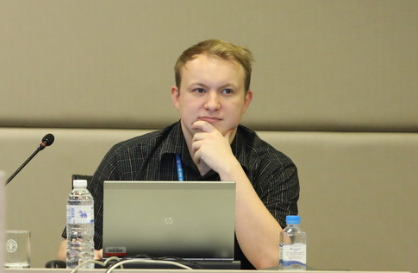
Eric Newton
Council Member
Eric Newton Council Member
Eric is based at the University of Reading, completing a PhD aimed at further understanding the nutritional and microbiological implications concerning the introduction of alternative source phycological supplementation of dairy cattle for consumers and the public health.

Kareem Damilola
Council Member
Kareem Damilola Council Member
Damilola Uthman Kareem - www.linkedin.com/in/damilola-kareem-uthman
Role: ECC Animal Bytes Co-ordinator
Organisation: The University of Sydney; Federal University of Agriculture Abeokuta
Damilola is a PhD student, working with the Poultry Research Foundation group at the University of Sydney, Australia under the supervision of Dr Sonia Liu, and currently holds a position as Assistant Lecturer in the Department of Animal Nutrition, Federal University of Agriculture Abeokuta, Nigeria. He has been working on protein reduction in poultry diets during his MSc at the Sao Paulo State University, Brazil, under the supervision of Prof Nilva Sakomura; he worked on finding alternative cereal combinations to replace maize in reduced protein broiler diets. He is continuing in this line of research in his PhD, where he aims to better understand how starch-protein digestive dynamics in relation to the net energy system impact the utilisation of nutrients and fat deposition in broiler chickens fed reduced protein wheat-based diets. He is interested in research areas involving amino acid metabolism and utilization, sustainable poultry nutrition, and modelling and simulation, among others. Damilola has been a member of the Early Career Council (ECC) since becoming a BSAS member in 2021 and now serves as the ECC Animal Bytes Coordinator. Damilola is a Registered Animal Scientist (Associate) with the British Society of Animal Science and a strong advocate of the UN 2030 SDG Goals 2, 12, 13, and 15.
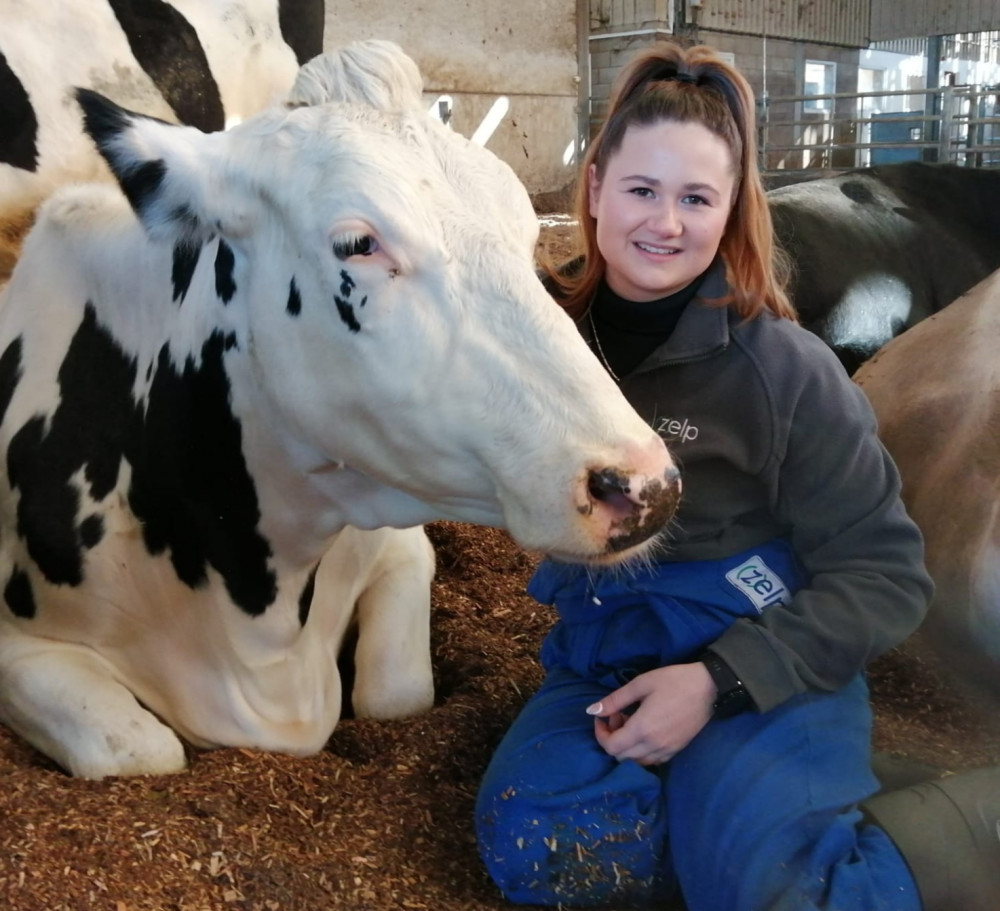
Daria Baran
Council Member
Daria Baran Council Member
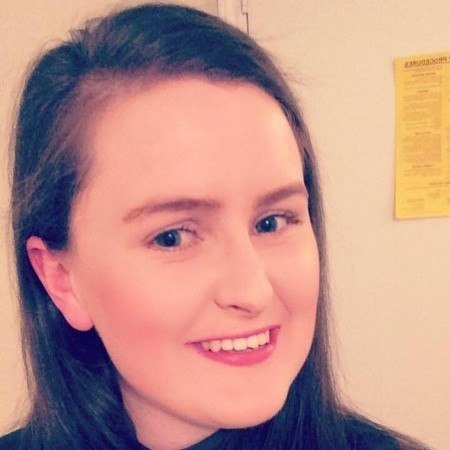
Rachel Doyle
Council Member
Rachel Doyle Council Member
Dr Rachel Doyle - https://www.linkedin.com/in/rachel-doyle-9a43b479/

Role: ECC Events Subgroup
Organisation: Teagasc
Bio: Rachel is an Animal Reproduction Technologist in Teagasc Moorepark. Her current work specialises in reproductive physiology across a number of areas including the use of assisted reproductive technologies to accelerate genetic gain in dairy and beef breeds. Rachel completed her Walsh Scholarship PhD in 2020 with Teagasc and the University of Missouri. Her research looked at elucidating the physiological mechanisms underpinning fertility in lactating dairy cows. Rachel completed her undergraduate studies, in Animal Science, at UCD. Prior to her role at Teagasc, Rachel was as a Lecturer at South East Technological University (SETU) in the Department of Land Science. Rachel has over 10-years of practical work experience in the agricultural sector, including dairy, sheep, pigs, and beef. Rachel has been a member of the Early Careers Council since 2022.
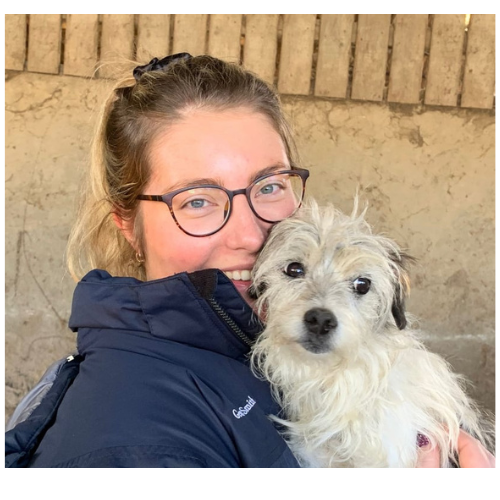
Georgina Smith
Council Member
Georgina Smith Council Member

Role: Sponsorship and Awards Committee Rep
Organisation: University of Leeds
Georgie is a PhD student at Leeds working on pre-wean piglet performance. Their project focusses on gut health and promotion of an optimal microbiota in the hindgut using compounds naturally found in the sow’s milk. They have developed an in vitro model of the piglet colon using batch fermentation techniques to provide a high-throughput method of testing various treatments. Georgie is most interested in milk oligosaccharides present in colostrum and how we may be able to use synthetic formulations of these structures to better supplement existing milk replacers. Prior to their PhD, Georgie lectured at University Centre Bishop Burton specialising in Equine Nutrition and Biomechanics. Their passion for research in nutrition stemmed from Undergraduate and Masters degrees at Hartpury University studying Equine Science (UG) and Equestrian Performance (MRes). Georgie may have swapped horses for piglets in their research, but they are still a keen equestrian at heart!
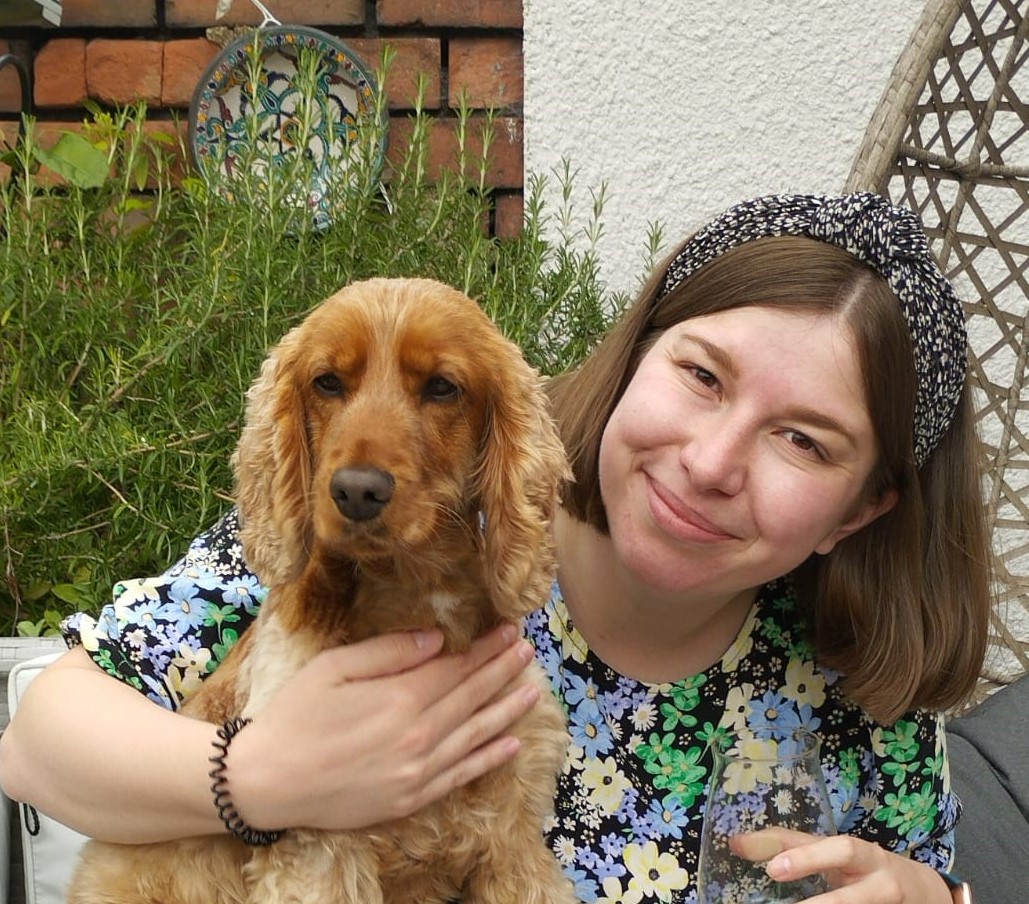
Isabel Bacon
Council Member
Isabel Bacon Council Member
Dr Issy Bacon – https://www.linkedin.com/in/drisabellewis

Role: Fledgling and Animal Byte Co-ordinator
Organisation: Hartpury University
Bio: Issy is an early careers Animal Health Lecturer at Hartpury University, sharing her expertise on diseases in livestock. Her work specialises in virology, during her PhD where she studied virulence factors of Capripoxviruses working at world leading institutes: The Pirbright Institute (UK), The Friedrich Loeffler Institut (Germany) and The Royal Veterinary College (UK). This research has led her to present my results at conferences in both Europe and the United States. More recently during her tenure at ARU Writtle her work expanded from developing the rationale for vaccine development to investigating animal health and welfare from needle-free vaccine delivery systems. Currently her work focuses on lecturing and supervising the next generation of Animal scientists. Her key areas of interest are livestock diseases, viruses, vaccinations and their implications on animal health, welfare, and management. Issy has been a member of the Early Career Council for one year and now is the co-ordinator of both the Fledgling and Animal Bytes.

Stefan Yerby
Council Member
Stefan Yerby Council Member
Having spent over fifteen years working in agriculture, my passion for, and commitment to, the livestock sector has been central to my career and my life. I transitioned from working on dairy farms into academia because I felt driven to have a greater impact on the agricultural industry than I could from the pit of a milking parlour in Guernsey. I have been a member of BSAS and the ECC since the beginning of my PhD three years ago and have become more involved in the society in 2024, working as digital content curator and sitting on the organising committee for the annual conference. Working as a herdsman honed my time management and goal orientation skills, which have carried through to my research. I am working diligently to build a research portfolio, and offer the perspective of an early career researcher who moved into academia through a non-typical route; making me acutely aware of the economic and environmental challenges facing the livestock sector.
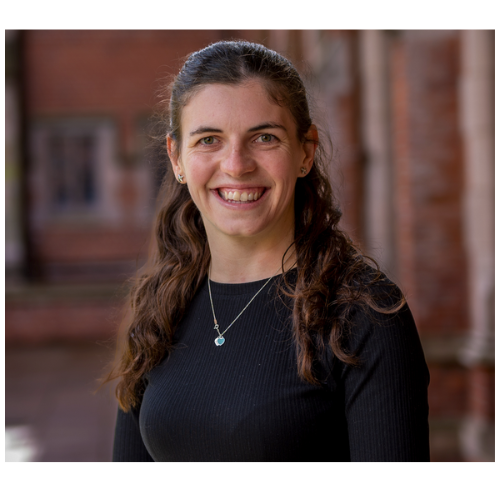
Lynda Perkins
Council Member
Lynda Perkins Council Member
Role: Social Media
Organisation: Queen’s University Belfast
| Email: l.perkins@qub.ac.uk | ORCID ID: https://orcid.org/0009-0008-4303-125X |
| Google Scholar: Lynda S. Perkins | Linkedin: http://linkedin.com/in/lynda-perkins-2a906314b |
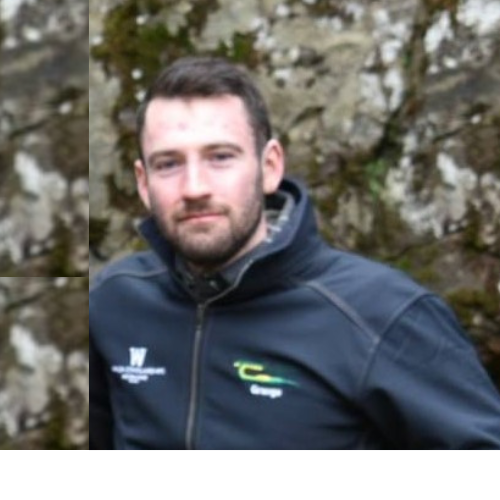
Neal Folliard
Council Member
Neal Folliard Council Member
https://www.linkedin.com/in/neal-folliard-92a591214
Role: BSAS 2025 Local Organising Committee ECC Rep
Organisation: Teagasc
Neal is PhD Walsh Scholar based in the Teagasc Grange beef research centre in Ireland and started his studies with the University of Galway in 2023. Neal’s research has focussed on the use of rapeseed feed ingredients (rapeseed oil and rapeseed cake) in beef rations as a strategy to mitigate enteric methane emissions. This work is part of the internationally collaborative ‘Integrity’ project which is funded through an ERA-GAS call for circularity by DAFM. The aim of the project is to look at more circular approaches to reducing greenhouse gas emissions in agricultural systems. Neal has joined the early careers council in 2024 after presenting his first paper at the annual conference in Belfast.
Prior to commencement of the PhD, Neal has completed his undergraduate degree in animal science with University College Dublin in 2018, followed by two years of experience as an agricultural consultant before returning to education to complete a masters in ‘Agrifood Sustainability and Technology’ with the University of Galway in 2022. Neal’s role on the council will be as part of the local Organising Commitee for the annual BSAS conference that will take place in Galway in 2025.
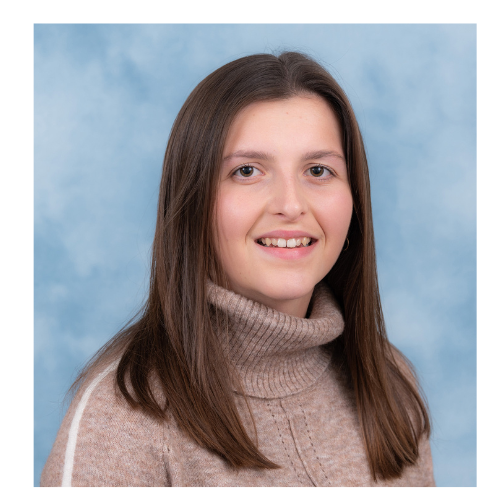
Nia Lloyd
Council Member
Nia Lloyd Council Member
Linkedin: https://uk.linkedin.com/in/nia-lloyd-8b9b041b9
Staff profile: https://www.aber.ac.uk/en/ibers/staff-profiles/listing/profile/nid31/#research
Organisation: Prifysgol Aberystwyth / Aberystwyth University
Nia lectures in Agri-Business at Aberystwyth University and is also completing a PhD part time looking at improving the production efficiency of Welsh farms. Nia graduated from Aberystwyth University with a degree in Agriculture and went on to complete a MSc in Livestock Science. She then spent time working in industry as research and development officer for the Welsh red meat levy board and spent time as a dairy technical specialist for a well renowned feed company, before returning to academia. In 2024, Nia was shortlisted for the Presidents Prize at the BSAS conference in Belfast, with her presentation titled ‘Associations between data derived KPI’s and gross margin in Welsh and English beef suckler herds’. Nia also farms with her husband and parents in law, milking a herd of Holstein x Frisian’s and running a flock of Welsh mountain ewes. In her spare time she enjoys running, cycling and swimming.
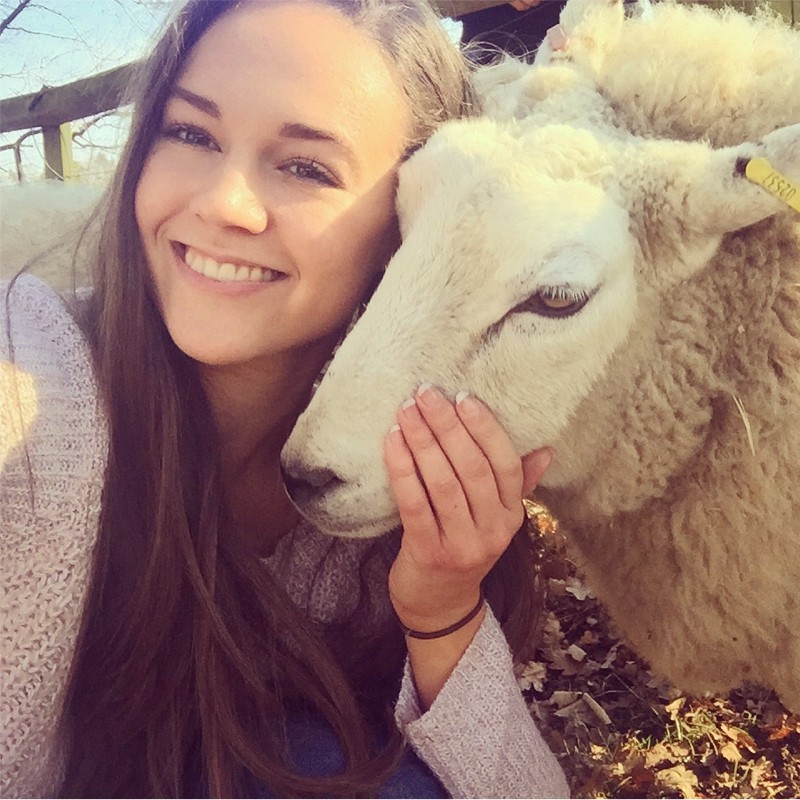
Sophie Park
Council Member
Sophie Park Council Member
Role: Academic Communications
Organisation: University of Liverpool; University Centre Reaseheath
Sophie is a Bioveterinary Scientist from a farming background in Cumbria. She graduated from Harper Adams University with a first-class BSc honours degree before continuing to work there as a research assistant on ruminant trials not limited to in-vitro digestibility, dairy cow behaviour and vaccine efficacy in sheep. Sophie commenced a lecturing post at University Centre Reaseheath in 2022 teaching on the Sustainable Agriculture and Equine Bioveterinary Science degree pathways as a Course Manager, winning the Inspiring Lecturer Award 2023. At UCR, Sophie sits on the ethics committee and studied for her Award in Education and Training in 2022. She is currently studying a BBSRC-DTP sponsored PhD at the University of Liverpool. Her project, "The Sustainable Control of Parasites in British Dairy Cows", involves collecting serology data via bulk tank milk samples and assisting in the development of disease forecasting models to better predict risk of parasitosis. She is currently a member of the British Association of Veterinary Parasitology (BAVP) committee and her future research interests lie within translating research into practical on-farm solutions. In her spare time, Sophie milks cows on a local farm and enjoys long walks and training sessions with her working dogs.
